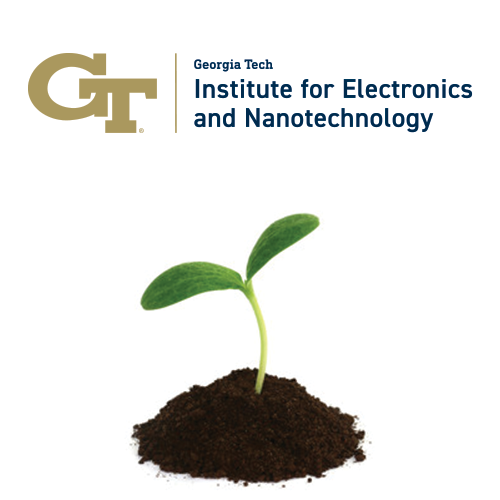Spring 2022 IEN Seed Grant Winners Announced
May 17, 2022 — Atlanta, GA

The Institute for Electronics and Nanotechnology (IEN) at Georgia Tech has announced the winners for the 2022 Spring Core Facility Seed Grants. The primary purpose of this program is to give first- and second-year graduate students in diverse disciplines working on original and unfunded research in micro- and nano-scale projects the opportunity to access the most advanced academic cleanroom space in the Southeast. In addition to accessing the high-level fabrication, lithography, and characterization tools in the labs, the awardees will have the opportunity to gain proficiency in cleanroom and tool methodology and access the consultation services provided by research staff members in IEN. Seed Grant awardees are also provided travel support to present their research at a scientific conference.
In addition to student research skill development, this bi-annual grant program gives faculty with novel research topics the ability to develop preliminary data to pursue follow-up funding sources. The Core Facility Seed Grant program is supported by the Southeastern Nanotechnology Infrastructure Corridor (SENIC), a member of the National Science Foundation’s National Nanotechnology Coordinated Infrastructure (NNCI).
Since the start of the grant program in 2014, 78 projects from ten different schools in Georgia Tech’s Colleges of Engineering and Science, as well as the Georgia Tech Research Institute and three other universities, have been seeded.
The six winning projects in this round were awarded IEN cleanroom and lab access time to be used over the next year. In keeping with the interdisciplinary mission of IEN, the projects that will be enabled by the grants include research in semiconductor technology, metamaterials, quantum devices, polymer films, and materials analysis.
The Spring 2022 IEN Core Facility Seed Grant Award winners are:
Customized Nonlinear Metamaterials for Photon Upconversion
PI: Wenshan Cai | Student: Anjan Goswami
School of Electrical and Computer Engineering/School of Materials Science and Engineering
Fabricating Semiconductor Moiré Quantum Devices for Quantum Information Applications
PI: Zhigang Jiang | Student: Wei-Chen Wang
School of Physics
Enhancing Ferroelectric Switching Through Sputter Process Control in AlScN
PI: Lauren Garten | Student: John Wellington-Johnson
School of Materials Science and Engineering
Self-Repairing Polymeric Films as Artificial Solid-Electrolyte Interface Enabling Rechargeable Zinc Metal Batteries
PI: Seung Woo Lee | Student: Kun Ryu
George W. Woodruff School of Mechanical Engineering
New Applications of Raman Spectroscopy for Determining Sediment Provenance in the Southern Alps of New Zealand
PI: Karl Lang | Student: Dru-Ann Harris
School of Earth and Atmospheric Sciences
Next-generation Back-illuminated Silicon Photomultipliers with Multi-layer Antireflection Coatings on Textured Surface
PIs: Anna Erickson and Yuguo Tao | Student: Mackenzie Duce
George W. Woodruff School of Mechanical Engineering (Nuclear and Radiological Engineering Program)
The Southeastern Nanotechnology Infrastructure Corridor (SENIC), a member of the National Nanotechnology Coordinated Infrastructure (NNCI), is funded by NSF Grant ECCS-2025462.




